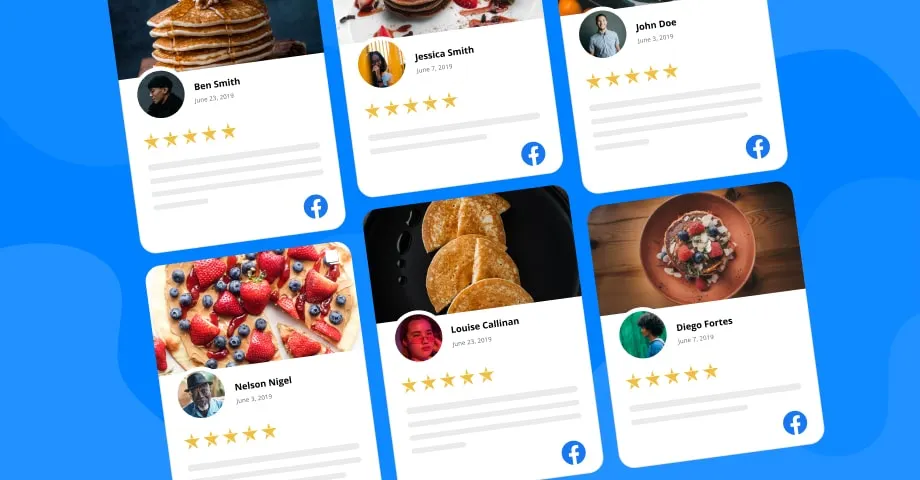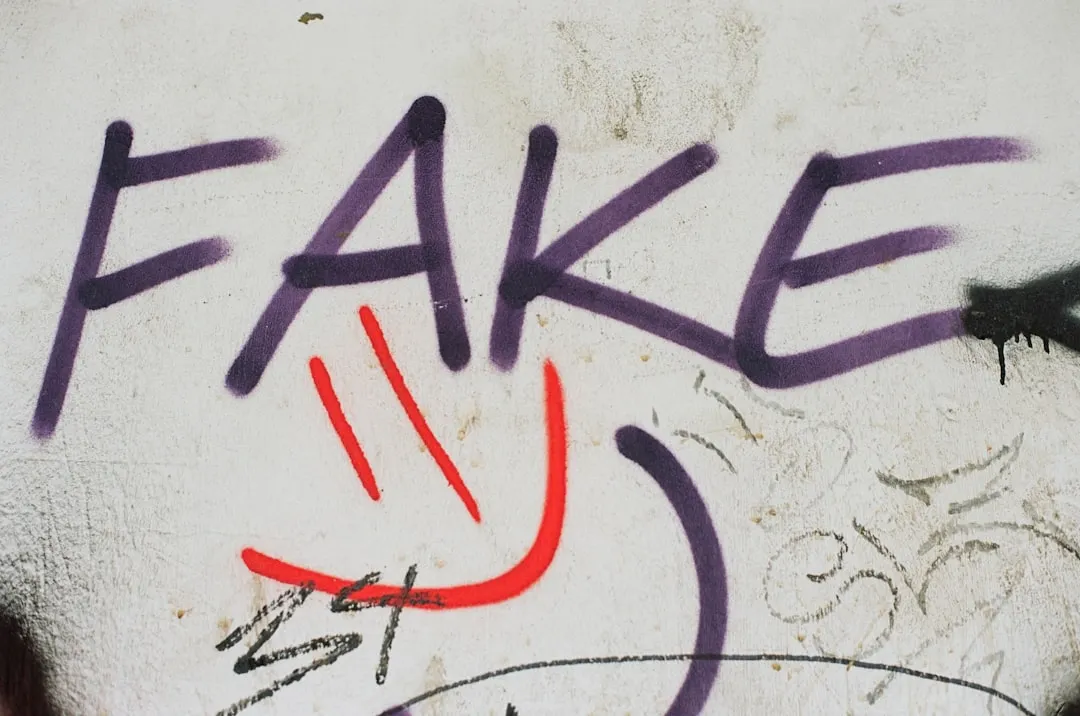Confessions of a Review Addict: How Online Feedback Rules the Hospitality Kingdom (and Your Next Vacation)
A decade ago, booking a room meant trusting glossy brochures and the mysterious art of motel signage. Now, meet the new gods of travel—random online reviewers and their often-divine opinions. (Raise your hand if you've read twenty 3-star reviews about hotel pillows before committing.) As a confessed review addict, the author once spent a full hour reading comments about continental breakfasts—only to then eat a granola bar in the parking lot. This blog peels back the curtain on the strange, surprisingly human world of online feedback, where every five-star rating and snarky complaint shapes the fate of hotels, restaurants, and your next vacation—and where the wisdom of the crowd can be more powerful (and more entertaining) than a million-dollar ad campaign.

Ancient Rome Had Thumbs—Now We Have TravelFan98: A Brief, Bizarre History of Reviews
Long before “TravelFan98” or “CatLover67” ruled the digital comment sections, ancient Romans were already in the business of public feedback—except their version involved sweaty gladiators and a stadium full of people giving literal thumbs up or down. Talk about high-stakes reviews! The Psychology of Online Reviews shows that while the tools have changed, the impact of online reviews—and the social proof they provide—remains as powerful as ever. In the Colosseum, a bad review could cost you your life. Today, it might just cost you a hotel booking or a shot at the coveted “Best Brunch” badge.
Fast forward a couple millennia, and everyone’s a critic. The modern review culture has evolved from whispered word-of-mouth to a digital democracy, where anyone with Wi-Fi and a username like “LuxuryTraveler420” can sway the masses. Whether you’re picking a hotel or a taco truck, the impact of online reviews is undeniable. As Catalina Brinza puts it:
“Reviews have evolved faster than my willingness to try unknown buffet sushi.”
The real magic? Social proof in online reviews. When you see hundreds of people raving about a pillow’s cloud-like softness, you’re more likely to book that hotel—even if you’re allergic to feathers. This isn’t just marketing fluff; it’s psychology at work. We trust the crowd, even if the crowd is led by “DogMom4Life” and “BudgetNomad.” The psychology of online reviews tells us that we crave belonging, and reviews offer a virtual tribe to join (or avoid).
Story Time: The 2-Star Laundromat Fiasco
Let’s get personal for a second. Once, in a fit of vacation optimism, I ignored a 2-star review for a local laundromat. “How bad could it be?” I thought, dismissing the warnings from “SockSeeker88.” Turns out, pretty bad. My favorite shirt came out looking like it had survived a gladiator match. Lesson learned: trust the wisdom of the crowd, even if the crowd has questionable usernames.
From Gladiators to Keyboard Warriors
Crowdsourced reviews feel oddly democratic—sometimes more so than actual elections. Anyone can weigh in, and sometimes, the loudest voices aren’t the experts but the everyday travelers, foodies, and, yes, laundry enthusiasts. The evolution of reviews has made everyone an influencer, whether you’re a seasoned critic or just someone with strong opinions about hotel pillows.
- Ancient Rome: Thumbs up or down—instant feedback, no Wi-Fi required.
- Today: Star ratings, epic rants, and viral memes—plus the occasional plea for free dessert.
So, next time you scroll through reviews, remember: you’re participating in a tradition as old as civilization itself—just with fewer togas and more hashtags.
The Secret Sauce: Why We Trust Strangers on the Internet (and Not Ads)
Let’s face it: in the age of “Consumer Trust Online Reviews,” we’re all just a few clicks away from letting a total stranger named PoodleMom44 decide where we’ll spend our next vacation. It’s not just you—science says we’re wired this way. When it comes to booking hotels, picking restaurants, or choosing which pillow to rest our weary heads on, we’d rather trust a chorus of internet voices than a glossy ad promising “the best night’s sleep ever.”
Social Proof Online Reviews: The Crowd Knows Best
Why do we trust reviews from people we’ve never met (and whose usernames sound like rejected Wi-Fi passwords)? It’s all about social proof. When 200 strangers weigh in on whether a hotel’s breakfast is “heavenly” or “suspiciously beige,” it feels comforting—even if one of them is “TravelFan98” and another is “CatLover67.” Social proof is our brain’s shortcut for decision-making: if lots of people like something, it must be good. Or at least, not a total disaster.
According to TrustYou’s research, a whopping 92% of consumers trust word-of-mouth recommendations over advertisements. That’s right—your neighbor’s cousin’s review of a hotel’s pool carries more weight than a million-dollar ad campaign. And it gets better: 88% of consumers treat online reviews as personal recommendations. As Catalina Brinza puts it,
“Consumers don’t just read reviews, they live by them.”
Why We’d Rather Blame “LuxuryTraveler420” Than Ourselves
Let’s be honest: the impact of online reviews goes beyond just information. Reviews are our safety net. When faced with a dizzying buffet of options (and nobody wants to be the one who picked the hotel with mystery stains), reviews help us dodge regret. If 200 people say the sheets are clean, we can sleep easy—literally and figuratively. If things go south, well, at least we weren’t the only ones fooled by the “ocean view” that turned out to be a parking lot.
Cutting Through the Marketing Noise
Ads are everywhere, promising us paradise with every click. But consumers have learned to tune out the hype. Reviews, on the other hand, cut through the noise. They’re real, raw, and sometimes hilariously honest. (Who can forget the legendary review about the haunted ice machine?) When 88% of people read reviews to assess business quality, it’s clear: review scores are often the difference between a booking and a lost guest.
- Social proof turns strangers into trusted advisors.
- 92% of people prefer reviews to ads—no matter how catchy the jingle.
- Reviews offer a shortcut through information overload and help us avoid regret.
- Review scores can make or break a business in the hospitality kingdom.
So next time you’re scrolling through feedback from “PoodleMom44” and friends, remember: you’re not alone. You’re part of a global tribe, united by the search for the world’s fluffiest towels and the perfect continental breakfast.
Feedback, Validation, and Internet Fame—Why Do People Write Reviews, Anyway?
Let’s face it: writing online reviews is the closest most of us will get to wielding real power. In the world of Consumer Behavior Review Writing, every keyboard warrior is a digital hero, bravely saving future travelers from rock-hard pillows, questionable breakfast buffets, or elevators that make horror movie noises. As TrustYou’s research shows, the urge to leave feedback is less about stars and more about the intoxicating idea that your words could make—or break—a business. Who wouldn’t want to be the person whose review led to a hotel swapping out their “vintage” mattresses for something less medieval?
There’s a delicious sense of influence at play. Posting a review is a bit like throwing down the gauntlet—or, as Catalina Brinza puts it,
“Posting a review is the digital version of throwing down the gauntlet—or tossing a rose.”
Sometimes you’re warning the masses about a haunted ice machine; other times, you’re showering praise on a front desk agent who saved your vacation (and maybe your sanity).
The Psychology Behind Guest Experience Digital Feedback
Why do people feel so compelled to share? It’s all about validation and empowerment. When you write a review, you’re not just venting—you’re joining a tribe of fellow travelers, foodies, and “LuxuryTraveler420” types. According to TrustYou, 88% of consumers treat reviews like personal recommendations. That means every comment section is a virtual dinner party, and your story could be the one that tips the scales for someone else’s booking decision.
- Altruism: Helping others avoid vacation disasters or discover hidden gems.
- Revenge: The modern equivalent of airing grievances in the town square—except now, your neighbors are the entire internet.
- Attention: Let’s be honest, who doesn’t love a little internet fame? Especially if your review gets a “helpful” vote or sparks a management response.
Negative Reviews: Digital Grievance Airing (with Perks!)
Negative reviews are where things get juicy. Sometimes, it’s about getting an apology—or just feeling seen. Research shows that when businesses respond to negative feedback, it actually boosts psychological safety and loyalty. Imagine this: you write a scathing review about the “pool view” being a view of the parking lot. The next morning, you’re sipping complimentary champagne in a suite, courtesy of a manager desperate to win you back. Suddenly, you’re not just a guest—you’re a legend. And yes, you’ll probably tell everyone (and write another glowing review).
Online Reviews Impact: The New Currency of Trust
Consumers crave authenticity. In fact, 68% trust reviews more when there’s a mix of positive and negative feedback. Too many five-star ratings? Suspicious. A little messiness? That’s real life. For businesses, responding to reviews isn’t just polite—it’s strategic. A thoughtful reply can turn a critic into a loyal fan, proving that Guest Experience Digital Feedback is more than just noise; it’s the heartbeat of the hospitality kingdom.
Too Good to Be True? Why Authenticity (and a Bit of Mess) Builds Trust
Let’s face it: when it comes to Authenticity Online Reviews, consumers have developed a sixth sense for sniffing out the too-perfect, the too-polished, and the too-good-to-be-true. If you’ve ever scrolled through a hotel’s review section and found nothing but glowing 5-star raves, you probably felt a little suspicious—like you’d stumbled into a parallel universe where every guest is a poet and every pillow is spun from clouds. It’s no wonder, then, that a whopping 68% of consumers trust reviews more when both positive and negative feedback are present. In the wild world of Consumer Trust Online Reviews, a little mess is a good thing.
Why is this? Simple: perfection breeds suspicion. According to TrustYou’s deep dive into the Online Reviews Impact, 30% of consumers actually distrust businesses with only perfect feedback. That’s right—one out of every three people is side-eyeing your spotless record, wondering if you’re hiding something (or if your Aunt Linda wrote all 27 reviews). As Catalina Brinza puts it,
“A sprinkle of criticism makes praise more believable—like a dash of salt in caramel.”
Think about it: trusting a review section with only 5-star comments is like believing every contestant on a reality show is “just there to make friends.” We all know there’s more to the story. Realness rules. People want to know the bad as well as the good before they book a room, order the chef’s special, or commit to a mattress that promises “cloud-like support.”
Let’s not forget that infamous Airbnb listing with 27 gushing reviews—all written with suspiciously similar punctuation and a fondness for the phrase “cozy yet spacious.” If that doesn’t set off your internal alarm bells, nothing will. Consumers crave authenticity in online feedback because it helps them make realistic decisions. A few negative comments—about the slow elevator, the lumpy pillow, or the mysterious stain on the carpet—don’t scare people away. In fact, they make the positive feedback more credible.
- 68% of consumers trust reviews more when there’s a mix of positive and negative comments.
- 30% of consumers distrust only-perfect businesses.
- Realness rules—people want to see the flaws before diving in.
In the hospitality kingdom, authenticity is currency. A business that embraces its imperfections and responds to feedback—good, bad, or “the Wi-Fi was slower than dial-up”—earns more trust than one that sweeps every complaint under the rug. So, the next time you see a review section that’s a little messy, remember: it’s not a sign of failure. It’s a sign you’re seeing the real deal.
How Not to Get Canceled: Making Reputation Management a Full-Time Hobby
In the wild world of hospitality, Online Reputation Management isn’t just a buzzword—it’s the difference between being booked solid or being ghosted by guests. According to TrustYou’s deep dive into The Psychology of Online Reviews, a whopping 88% of consumers check reviews before deciding if a business is worth their precious vacation days (or dollars). And for travelers, the review score is second only to price. In other words, you could offer free pillow mints and a chocolate fountain in the lobby, but if your review score looks like a sad emoji, you’re out of luck.
But here’s where it gets really interesting: 30% of consumers say that a business’s response to reviews is a make-or-break factor. That’s right—ignoring your reviews can slash customer advocacy by up to 50%. As Catalina Brinza puts it,
“Responding to reviews isn’t just good manners—it’s reputation insurance.”
In today’s digital coliseum, silence isn’t golden; it’s a one-way ticket to the canceled club.
So, what’s the secret sauce to mastering the Importance of Responding to Reviews? First, treat every review like it’s being read by the entire internet—because, well, it probably is. Respond promptly, ditch the copy-paste replies (everyone can spot a “Dear Valued Guest” from a mile away), and remember: every response is a chance to flex your customer service superpowers. Even a negative review is an opportunity to turn a critic into your next raving fan. Some of the most viral moments in hospitality come from epic, witty, or downright heroic responses to trolls. Imagine if hotels handed out awards for “Most Epic Response to Trolls”—the acceptance speeches alone would be worth the price of admission.
Best Practices Managing Reviews means making review responses part of your daily routine, not just an afterthought. The review conversation never ends, and neither should your engagement. Ongoing, thoughtful responses show that you care, you listen, and you’re ready to make things right (or at least explain why the Wi-Fi was slow during the thunderstorm of the century).
And if you’re feeling overwhelmed by the sheer volume of feedback, don’t worry—TrustYou, ServiceRating and similar platforms offer workshops, guides, and even AI agents to help you become a review-response ninja. From templates to best-practice webinars, there’s no excuse for letting your online reputation gather dust.
In conclusion, the Importance of Review Score for Travelers and the art of managing reviews is no longer optional—it’s a full-time hobby, a competitive sport, and, for some, a calling. So, whether you’re a boutique hotelier or a vacation rental host, remember: the world is watching, screenshotting, and deciding where to book next. Make every review count, and you’ll never have to worry about getting canceled—at least, not for your hospitality skills.
For more information on ServiceRating.CC, you can check out the following URL:
- Website: https://servicerating.cc
- Blog: https://blog.servicerating.cc
- Community: https://community.servicerating.cc
- Subscription: ServiceRating.CC Monthly & Yearly License
- Subscription: ServiceRating.CC Lifetime License
P.S. Don't forget to follow us on social media, the community, the website and the - - YouTube channel for even more inspiration and updates!
- Website: https://thereviewshed.cc
- Website: https://van-santen-enterprises.com
- Community: https://community.van-santen-enterprises.com
- Marketing Courses: https://thetraininghub.cc
- The Store: https://van-santen-enterprises.cc
- YouTube Channel: @VanSantenEnterprises
To Learn more about "Digital Marketing" or to stay informed, subscribe to the free newsletter or community.
.#OnlineReviews, #HospitalityInsights, #ReputationMatters, #GuestExperience, #TravelPsychology, #TrustYou, #FeedbackCulture, #ConsumerTrust
TL;DR: In the world of hospitality, online reviews have become more than just opinions—they're the unofficial currency exchanged for trust, reputation, and bookings. Ignore their power at your own peril.












